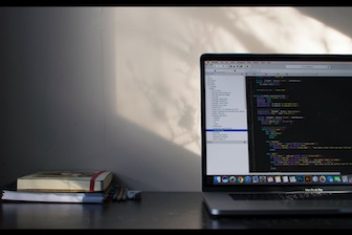DevOps engineers and software engineers both have similarities in their roles, but there are certain differences as well. One of the most significant differences between them is their focus area. A software engineer primarily focuses on how well a particular computer software meets client needs.
However, a DevOps engineer’s area of focus includes software development, software deployment methodology, and also on operational support through the cloud even after deployment. DevOps has increased in importance over the last few years. In fact, according to a survey by Atlassian, 99% of respondents said that DevOps had a positive impact on their organization. With this in mind, let’s look at X key differences between the DevOps vs. software engineers.
Read: How To Boost Code Writing Skills For Better Team Cooperation
1) Skills
Even though both DevOps and software engineers’ core skill is coding, they need a more extensive skill set since a DevOps engineer’s role is more expansive. Software engineers need to know about mathematics, algorithms, programming, and databases in addition to knowing how to code. However, apart from these skills, DevOps engineers also need to have other skills such as familiarity with DevOps tools, the ability to automate the process of development, knowledge of various infrastructure platforms, and also possess collaboration and communication skills.
2) Role
The role of a software engineer is different from that of a DevOps engineer. Typically software engineers work only on the development of software. After being given the software requirement specification, they design and develop the software, write the necessary code and algorithms, and finally test the software they build and hand it over for the deployment process.
However, the role of a DevOps engineer is considerably larger. They are responsible for overseeing each step of the Software Development Life Cycle (SDLC). Apart from having the same responsibilities as software engineers, they need to be aware of best DevOps security practices and perform operational duties, monitor software post-deployment and address any problems that may arise at the user end.
Read: Best DevOps Security Practices
3) Responsibilities
There are similarities in the responsibilities that software engineers and DevOps engineers have to fulfill. Both are involved in the development side of the SDLC; hence activities like gathering user requirements, coding, and testing are skills they need to possess. In fact, a DevOps engineer can start their career as a software engineer or even switch roles throughout their career. However, there are differences as well.
The responsibilities of a software engineer include:
– Writing new code for applications
– Implementing technical design
– Maintaining and improving the existing code base
– Reviewing any code changes
– Identifying any issues with the developed software
– Coordinating the deployment and installation of the developed software for clients
To fulfill these responsibilities, the software engineer needs to have strong reasoning powers and analytical skills, good programming skills, knowledge of algorithms and data structure, debugging large codebases and troubleshooting any software issues that may arise.
Read: How DevOps is Improving Software Development Protocols
Some of the responsibilities of a DevOps engineer include:
– Accessing the technological automation tools
– Leading the software development team
– Managing the cloud deployment
– Maintaining DevOps compliance and security control
– Monitoring operations
– Working on and improving the development process
To fulfill these responsibilities, DevOps engineer skills entail an in-depth knowledge of programming, problem-solving and organizational skills, knows about DevOps and agile principles.
Read: Web Development Vs. Software Development, Which is the better career
4) Experience
A software engineer is more likely to succeed at their job without professional experience or a college degree compared to a DevOps engineer. For instance, there are more entry-level positions for a software engineer than a DevOps engineer. Individuals can get a job as a software engineer directly after college or even after learning coding independently without attending college.
However, fewer DevOps positions will be willing to accept a candidate who does not have a college degree backed up with 3 or 4 years of DevOps experience. This is because a DevOps engineer needs to have a more comprehensive skill set and has considerably more experience than a software engineer.
If you like the content, we would appreciate your support by buying us a coffee. Thank you so much for your visit and support.



